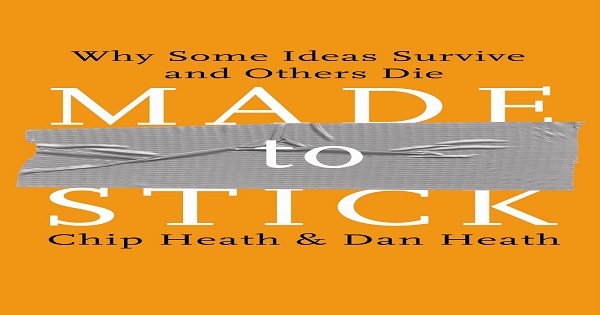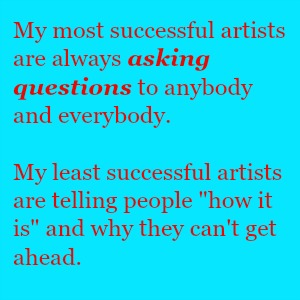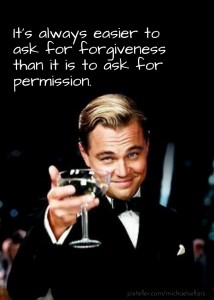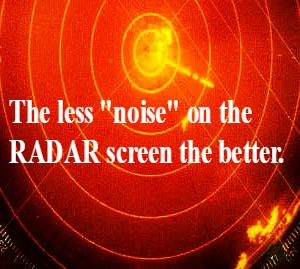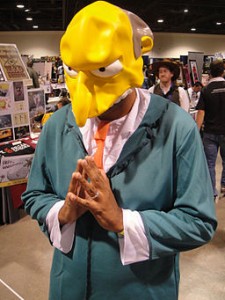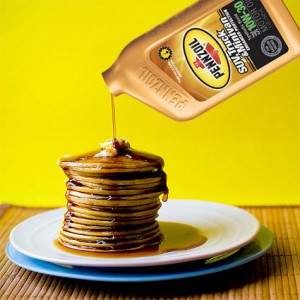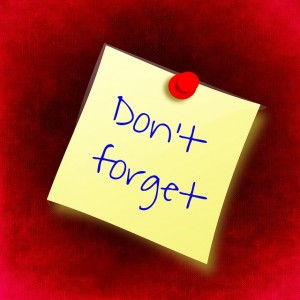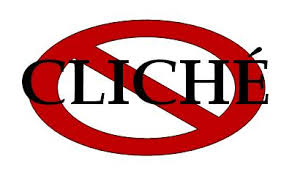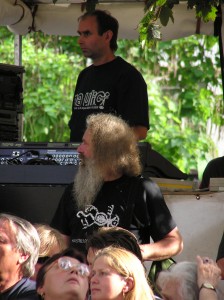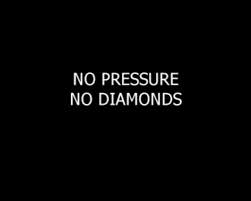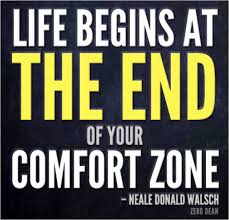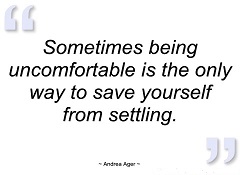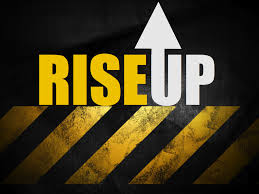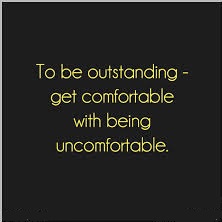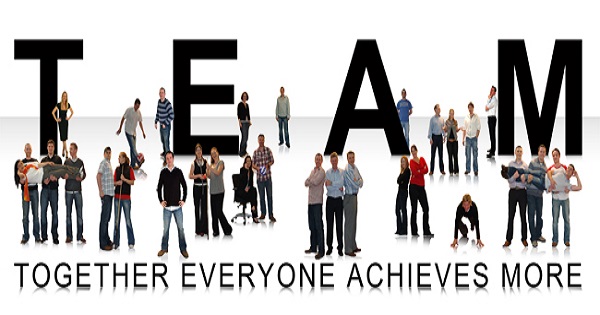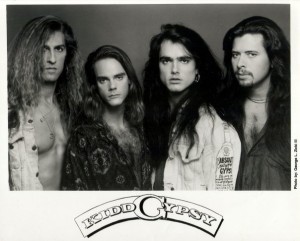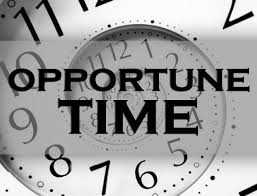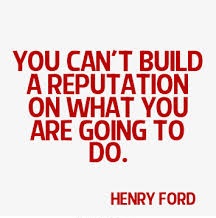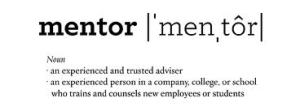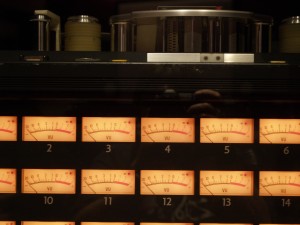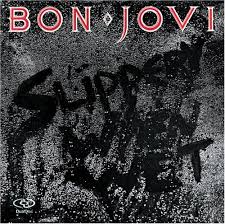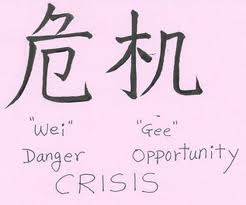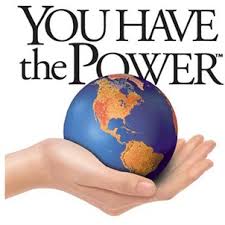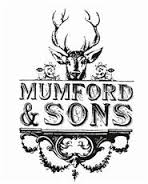How do you find your sound?

It’s different for every artist, at least it should be. There has to be attention paid to what the artist is doing creatively so that the sound is what the artist is really, genuinely trying to do or you end up with a dancing chicken. That’s no fun.
There also has to be some thought put into the marketplace. This may sound non artistic but I beg to disagree. With some projects, subtle, intelligent changes can be made to cut through the clutter or expand the audience without stifling the art.
A bunch of you reading this article believe that to find your sound is whatever you happen to write about which makes it “organicâ€, more natural, etc.
That is true to a degree, however there has to be intentional curation, there has to be serious thought put into what this project is going to sound like, representation, the message, the image, the artistic “lane’. If there isn’t it comes out sounding haphazard and somewhat schizophrenic.

Thematically, Adele’s 21 was all about her breakup. If she threw in a killer hit song about anything else, it wouldn’t have fit. That’s what I mean by schizophrenic.
Just because it’s a hit song doesn’t mean it’s a hit song for you. Here’s a great example.
One of my favorite songs last year was Kenny Chesney’s “American Kidsâ€. GREAT song! (OK it really speaks to me and my upbringing in a faded little map dot called Delavan, Wisconsin. Love that map dot)
This was a HUGE hit for Kenny. What you may not know is that “American Kids†was pitched to Lady Antebellum first and they passed on it; appropriately so.
What?

Yes, that song is killer, but it wasn’t for them. It didn’t fit their brand so it wouldn’t work right.
Here’s my point.
Finding your sound starts at “30,000 feet†where you begin to craft your artistic lane with the broad strokes first. You have to put some DEEP thought into this because it will become the blueprint that will give guidance to which songs to pick if they’re outside cuts, which of your songs you should, record and which of your songs you should either let someone else record OR save for a future project.
songs to pick if they’re outside cuts, which of your songs you should, record and which of your songs you should either let someone else record OR save for a future project.
How much thought?
Marrying a project that is genuinely consonant with the artist from the inside out with an artistic lane that is ideally empty or hopefully not very crowded is an art form.
Case Study #1: Bailey James

When I first heard Bailey I was blown away by her voice. She was simply an astonishing little 11-year old girl with an incredibly mature voice. Her instrument is somewhat reminiscent of the great Patsy Cline in tone and her melodic sensibilities.
Right away, that’s exciting because I don’t really hear anyone in the country music marketplace that sounds like her; this makes her voice more “identifiableâ€.
What wouldn’t be distinguishable is if she sounded like or was trying to sound exactly like Carrie Underwood, or Miranda Lambert which is usually the case here with most wannabes in Nashville.
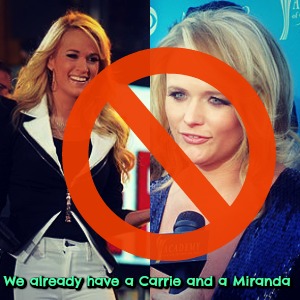
So that’s a step in the right direction.
Next what is really unusual, is that (now) 13-year old Bailey James genuinely likes old school country like Patsy Cline, Tammy Wynette, Johnny Cash, etc.
I think that when your Bailey’s age you HAVE to love 5 Seconds of Summer and Taylor Swift (check!) but other than these two artists she drives her parents crazy listening to, well, “Crazyâ€.
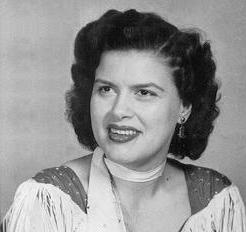
Here is unique value proposition #2. If we made a record that was reminiscent of old school country Patsy Cline the project would be in harmony with Bailey’s artistic soul.
I would be real. Which is to say it wouldn’t be contrived.
Get it?
This information began to get my creative juices flowing.
What if we made a record that was retro (ish) sounding? At the time there was nothing like this on the radio, (although very recently Maren Morris seems to be doing REALLY well with her very retro sound, salute! This helps my cause).

What if we made the melodies evocative of Patsy Cline which you don’t hear on country radio right now?
What if we supported these melodies with old school country chords and chord progressions which you don’t hear on the radio right now?

What if we added a neat artistically harmonious twist? Let’s make the lyrics more like Taylor Swift’s early records.
There were many reasons for Taylor Swift’s success and one of the big ones is that she and Scott Borchetta created  an artistic lane that was previously non-existent.
an artistic lane that was previously non-existent.
There were exactly ZERO artists lyrically catering to 9-14 year olds.
All country music artists were adult themed lyrically.
Here’s the twist. Taylor grew up.
Taylor went from:
“She wears short skirts
 I wear T-shirts
She’s cheer captain
    And I’m in the bleachersâ€
To writing
“I’ve got a long list of ex-lovers,
    They’ll tell you I’m insane
    But I’ve got a blank space baby,
    And I’ll write your name.â€

So who’s speaking for the 9-14 year olds in country music now?
Keep in mind we haven’t written any songs yet for Bailey’s project.
This very thought process led to some serious conversations that I had with Bailey and her parents.
 If we make a record like this, we’re going to have to commit to using the internet and touring to build a following as we probably wouldn’t be getting a lot of love from country radio, at least at first. If we wanted love from country radio we’d have to make a record like Kelsea Ballerini, which is fine, but why be derivative just to chase radio?
If we make a record like this, we’re going to have to commit to using the internet and touring to build a following as we probably wouldn’t be getting a lot of love from country radio, at least at first. If we wanted love from country radio we’d have to make a record like Kelsea Ballerini, which is fine, but why be derivative just to chase radio?
Country radio wouldn’t probably help us because she doesn’t sound like what they’re spinning right now and they don’t want to take chances. They’re losing listeners by the droves every single day.
Besides, radio is becoming increasingly less effective in breaking new artists so the money spent on radio promo wouldn’t really be well spent at this particular stage of the game.

We all agreed that this was the kind of record we wanted to make and we began to get Bailey with the songwriters that were willing to do business our way.
I say “our way†because it takes guts and commitment to purposefully write something you know probably isn’t going straight to radio. Writers get paid on the back end, with performance royalties, so why would they want to mess with this?
I gathered some writer friends and we went to work. I told the writers that the imagery had to be specific, keep it in the schoolyard. If the lyrics were universal enough that Carrie or Miranda could sell it, they had to go back to the drawing board. I wanted the kids to look at Bailey and say, “She speaks for us. She is our voice.â€
Melodically we wanted bigger melodies like Patsy Cline. Chord wise we wanted 1960’s country.
See what I’m doing here?

I have an artist that lives and breathes old school country who is STOKED to make a record in that vein. I also have a vacuum in the market place.
Perfect.
Moreover, I told Bailey’s parents if we made a record like this Bailey would stick out like a sore thumb from all the Disney bubblegum pop music.
We all agreed this was a good thing to “stick outâ€.

This initial understanding of a defined artistic lane was mission critical to picking the songs that made the EP. Bailey and the writers wrote a bunch, we picked 5 Bailey co-writes, 1 outside cut, and they were all melodically and lyrically dialed into the vision.
Are you picking up what I’m putting down?
I have some questions for you.
Have you defined your artistic lane?
How much competition is there in your artistic lane?
What kind of thought have you given towards your sound?
To find your sound you have to build around your strengths as an artist.
Bailey’s strengths, artistically lay in her voice, her love for old school country, and her age which gives us an advantage in the marketplace. This all has to do with the making of her sound, at least a sound that has a chance of standing out in the current marketplace and being heard by someone.
So Bailey is a great example of a solo artist whose sound was put together a certain way from the very beginning.
But what if you’re a band and you’re songs are already written? Let’s take a look at Van Halen and see exactly what producer Ted Templeman did to create their sound.

David Lee Roth is arguably one the very best front men ever to walk on stage (and in the interest of complete transparency I’ll tell you that he’s my favorite. AMAZING LIVE SHOW.)
However DLR would never win American Idol.
Ted was smart enough to know that the “live show†attraction of DLR wasn’t going to translate well onto tape. That’s a live thing. Eddie would though.
FREE VALUE BOMB: Btw, Templeman who was also a Sr. VP of Warner Brothers Records along with Mo Ostin 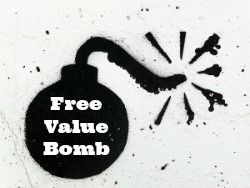 who was the Chairman, passed twice on Van Halen demos, it didn’t come across on their recordings. They LOVED Eddie and wanted to sign him alone, but didn’t like DLR (Templeman originally wanted to put Sammy Hagar with Eddie!) It wasn’t until they both saw Van Halen live opening for Dokken (whom they were there to see) that they got it and agreed to sign Van Halen.
who was the Chairman, passed twice on Van Halen demos, it didn’t come across on their recordings. They LOVED Eddie and wanted to sign him alone, but didn’t like DLR (Templeman originally wanted to put Sammy Hagar with Eddie!) It wasn’t until they both saw Van Halen live opening for Dokken (whom they were there to see) that they got it and agreed to sign Van Halen.
Templeman wanted the record to be about the guitar. That’s what was so special. Think about it.
COMPARE: Here is a link to one of the earlier Van Halen demos. Let’s just dissect the first song “On Fireâ€. It’s all there but it’s scattered and a bit out of focus isn’t it? Structurally as well as moment-wise.
- The harmonic guitar lick
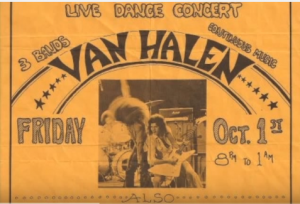
- Occasional badass DLR vocal scream (notice the first high note DLR hits is a real weak sounding falsetto without the signature multi overtone growl that he easily performs later on in the chorus “I’m on FIYAAAAA!â€
- The chorus hook, the vocal arrangement on the pre chorus “I’m hangin’ ten now baby, as I ride your sonic waaaaave†(ascending scream behind wave).
- The guitar lead
Now, listen to VH I album cut of “On Fire†very carefully. The differences can mostly be attributed to Templeman’s input crafting their sound. Finding moments and featuring them.
- First of all a bunch of fat was cut from the track.
- The guitar was panned all the way to the left with only the reverb return coming out of the right. (Definitely a
 revved up guitar sound that Templeman credits completely to Eddie)
revved up guitar sound that Templeman credits completely to Eddie) - Drums and bass were all the way to the right with DLR straight up the middle. (This abnormal mix strategy FEATURED the guitar.)
- Bombastic beginning chord progression before the signature riff starts.
- Notice, from the get go, the recording is loaded with all kinds of guitar licks filling up the vocal holes, featuring Eddie’s guitar prowess.
- Notice Templeman LOVED the harmonic guitar lick and featured it making it a recurring guitar hook. VH did it on the demo, Templeman did it more.
- The vocal melody was re-crafted subtly but it’s genius because it’s more powerful and memorable (more question/answer on the melody…do you hear it?)
- The end of the guitar solo was changed a bit to give Eddie a “lily pad†to land on giving the lead, which was ascending and creating tension, resolution at the end.
- All the falsetto voices from DLR are badass strong tone with signature growl that was intermittent on the demo. Many are doubled.
So to find YOUR sound you need to think like a record executive and create a lane with little or no competition. You also need to think like a producer and bring out the strengths of the act on the recording.
Sometimes you just need to write a BUNCH to hone in on your sound. The Beatles wrote at least 50-150 songs before they began to get it.

Last thing. Both the artists in these case studies are extremely talented. Both of them needed outside help to focus the talent and make it really shine for an audience.
Who’s helping you?
Stay
In
Tune.
If you found this article valuable, please SHARE and COMMENT on it. Thank you!


